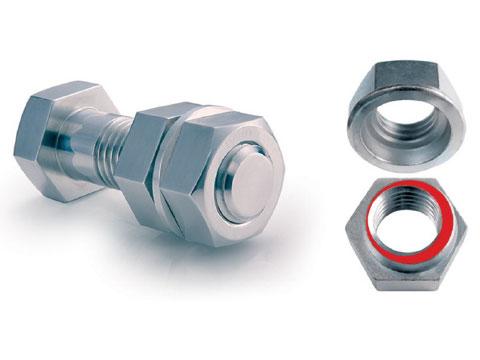
Posted to News on 19th Oct 2022, 08:54
Hardlock nut resists loosening in threaded joints

Staytite says the Hardlock nut provides its users with the premier solution to resist loosening in threaded joints. The Hardlock out-performs other fasteners by using a different methodology to create its locking force.
Unlike the majority of those other fasteners which employ prevailing torque method of ‘if it is hard to put on, it must be hard for it to come off’, the Hardlock solution winds easily on the thread, utilising the wedge principle to create its locking force only when the two halves of the nut combine.
Firstly, the lower convex nut generates axial torque in the same way as a normal nut. Importantly this nut has a small eccentricity at the upper convex (highlighted red in the image). Then, as the (symmetrical) concave upper lock nut is tightened against the eccentricity, it generates a wedge effect perpendicular to the axis. This pushes the lower convex nut against the screw thread. When the upper concave nut is completely tightened, the Hardlock nut produces a stable self-locking force that resists loosening from external vibration or impact.
Because the Hardlock’s all-metal non-destructive design doesn’t fatigue like most prevailing torque fasteners, it can be easily removed and reused. The Hardlock nut has been tested to 50 times, with no loss of performance.
The versatile Hardlock nut is available in a range of sizes, thread types, and can be retro-fitted to existing male thread components when required.
Staytite House, Coronation Road
Cressex Business Park
HP12 3RP
UNITED KINGDOM
0300 373 9029





